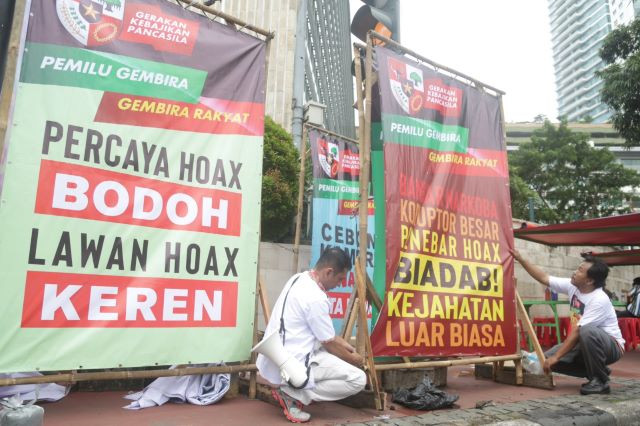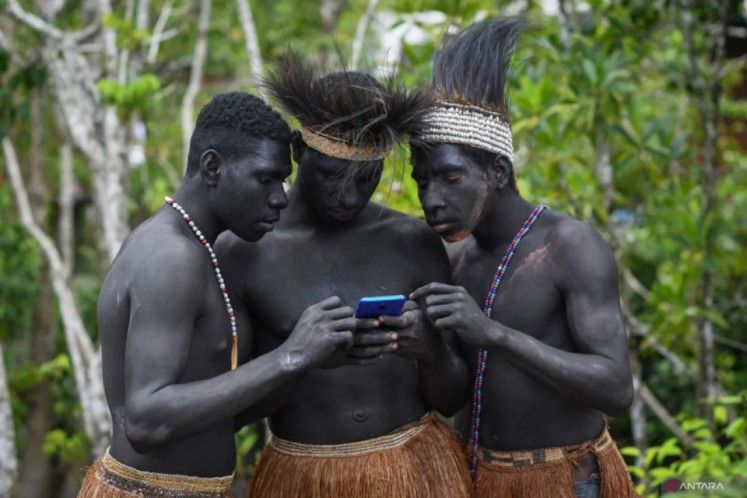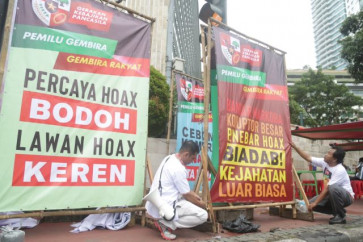Popular Reads
Top Results
Can't find what you're looking for?
View all search resultsPopular Reads
Top Results
Can't find what you're looking for?
View all search resultsHolistic approaches key to fighting disinformation
Sub-par digital infrastructure, including limited access to internet and slow network speeds, restricts the ability to access trustworthy news sources and fact-checking platforms, leading to the proliferation of disinformation.
Change text size
Gift Premium Articles
to Anyone
T
he graft case involving former communication and information minister Johnny G Plate in the government’s 4G internet connection project has undoubtedly reduced the level of public trust in digital infrastructure in Indonesia.
Johnny is currently standing trial, with state prosecutors charging him with abusing his power in the project and causing Rp 8 trillion (US$537 million) in state losses. The case is damaging the country’s digital infrastructure at a time when it aims to combat disinformation ahead of next year’s elections.
The poor quality of digital infrastructure in Indonesia has a significant impact on the spread of disinformation in the country. Sub-par digital infrastructure, including limited access to internet and slow network speeds, restricts the ability to access trustworthy news sources and fact-checking platforms, leading to the proliferation of disinformation.
The lack of access to diverse and credible sources hampers the ability to verify information, making it easier for disinformation to flourish. The slow internet speeds and unreliable connections in certain areas make it challenging to upload and share files, including multimedia content. This prevents fact-checkers, journalists and responsible citizens from being able to quickly counter false information with the truth. Consequently, disinformation can spread unchecked, amplifying its impact on public perception.
As of 2020, the World Bank reported that not everybody enjoyed equal access to the internet. 50 percent of adults experienced connection barriers on a mobile device, and even fewer people had access to fixed broadband internet. Approximately 80 percent of those not connected live in rural areas of Sumatra, Java and Bali, the country's three most densely populated islands.
In addition, around 60 to 70 percent of Indonesians living in the country's eastern regions are inadequately connected due to the low quality of internet services. This condition exposes the digital divide between Indonesia's western and eastern regions. This disparity contributes to a gap in information access and consumption, leaving certain populations more vulnerable to disinformation due to limited exposure to reliable sources, as exemplified in the case of Papua.
Indonesia has been facing a pervasive issue of disinformation, particularly during election cycles and amid social and political tensions. An example of this tension could be seen in the elections in 2014 and 2019, which were founded on identity politics. Malicious actors exploited the digital infrastructure to disseminate false information, propaganda and inflammatory content. This undermined public trust in institutions, fueled social divisions and threatened the integrity of Indonesia’s democratic processes.



















